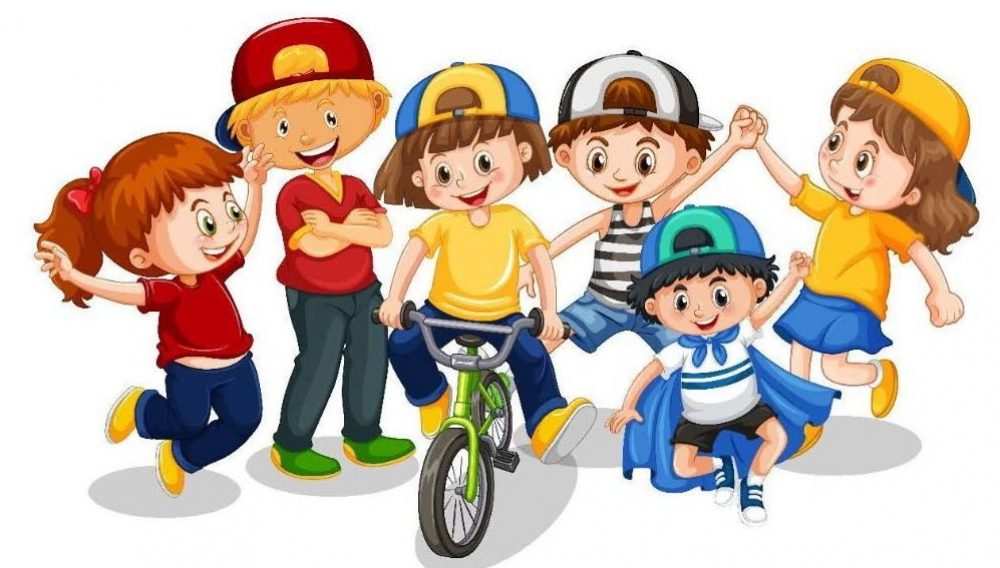In today's world, child development is an important area of concern for parents and caregivers. Understanding the different stages of development and being able to identify any issues early can have a significant impact on a child's overall development and well-being. In this write-up, we will focus on how to identify developmental issues among children during infancy and early childhood. We will explore the signs and symptoms of common developmental issues and discuss the importance of early intervention in addressing these issues. By understanding the key aspects of infant and early childhood development and knowing what to look out for, parents and caregivers can help ensure that children receive the support they need to thrive.
Developments during Infancy
Infancy is the first stage of life, typically spanning from birth to two years old. This period is a time of rapid growth and development, where infants learn new skills and abilities at an incredible rate. Here are some key aspects of the infancy stage:
- Physical Development: Infants experience significant physical changes during this stage. At birth, infants have reflexes such as the grasp reflex, rooting reflex, and sucking reflex. As they grow, they learn to control their movements, develop coordination, and gain more control over their bodies. Infants also experience significant growth during this stage, with their weight and height increasing at a rapid pace.
- Cognitive Development: Infancy is a critical period
for cognitive development. Infants learn through their senses and develop
their cognitive abilities by observing and interacting with their
environment. They learn to recognize faces, voices, and sounds and develop
the ability to understand simple concepts like cause and effect. Infants
also learn through play and exploration, using their senses to understand
the world around them.
- Social-Emotional Development: Social and emotional
development is also a crucial aspect of the infancy stage. Infants develop
strong attachments to their caregivers, and this bond is essential for
their emotional well-being. Infants learn to communicate their needs and
emotions through crying, facial expressions, and body language. They also
learn to respond to the emotions of others and develop basic social
skills, such as sharing and taking turns.
- Language Development: Infancy is a critical period
for language development. Infants start to recognize and respond to
familiar sounds and voices from birth, and they begin to develop their
language skills by babbling, cooing, and making sounds. As they grow, they
start to understand simple words and phrases and eventually learn to speak
their first words.
- Sleep: Infants sleep for most of the day, with periods of wakefulness for feeding, play, and interaction. The amount of sleep an infant needs varies, but most infants sleep for 14-17 hours a day during the first few months of life. As they grow, infants start to develop regular sleep patterns, with longer periods of sleep at night.
Developments during Childhood
Childhood is a stage of life that follows infancy and spans from ages two to twelve. During this period, children experience significant growth and development as they learn new skills, develop their personalities, and form relationships with others. Here are some key aspects of childhood:
- Physical Development: Children continue to grow and develop physically during childhood. They gain strength and coordination, and their fine motor skills improve, allowing them to engage in more complex tasks such as writing, drawing, and playing instruments. Children also start to lose their baby teeth and grow permanent teeth, and their height and weight continue to increase at a slower pace than during infancy.
- Cognitive Development: Childhood is a critical
period for cognitive development, with children learning at a rapid pace.
They develop their problem-solving skills, reasoning abilities, and
memory. Children start to understand abstract concepts, such as time,
money, and numbers, and begin to develop their creativity and imagination.
- Social-Emotional Development: Social and emotional
development is an essential aspect of childhood. Children learn to
interact with others and form relationships with peers and adults. They
develop empathy and learn to understand and regulate their emotions.
Childhood is also a time when children start to develop their
self-identity, including their beliefs, values, and personality traits.
- Language Development: Language development
continues during childhood, with children learning new words and improving
their grammar and syntax. Children also start to develop their literacy
skills, including reading and writing.
- Play: Play is a critical aspect of childhood,
allowing children to explore their environment, develop their
imaginations, and learn through hands-on experiences. Children engage in
various types of play, including physical play, social play, imaginative
play, and creative play.
How to Identify Developmental Issues among Children
Infancy and early childhood are crucial stages of development, and it is essential to identify developmental issues early to ensure children receive the necessary support and interventions. As a parent or caregiver, it's important to pay attention to your child's developmental milestones and seek professional help if you have any concerns. Here are some ways to identify developmental issues among children during infancy and early childhood:
- Monitor developmental milestones: Developmental milestones are skills or abilities that most children can do at a certain age range. These milestones include physical, cognitive, social-emotional, and language development. Tracking your child's progress against developmental milestones can help you identify any developmental delays or issues. For example, if your child is not meeting milestones such as rolling over, sitting up, crawling, or walking at the expected age, it may indicate a physical developmental issue.
- Look for signs of delays: Besides tracking
developmental milestones, look for signs of delays in your child's
development. For example, if your child does not respond to their name,
doesn't make eye contact, has delayed speech or language skills, or
struggles with social interactions, it may indicate a developmental delay.
- Observe behaviors: Children with developmental
issues may exhibit certain behaviors that can signal an underlying issue.
For example, if your child engages in repetitive behaviors such as rocking
back and forth or flapping their arms, it may indicate a sensory
processing disorder or autism spectrum disorder.
- Consult with professionals: If you have any
concerns about your child's development, it's essential to consult with a
healthcare provider or a developmental specialist. They can conduct
developmental screenings and assessments to identify any developmental
issues and provide recommendations for interventions and therapies.
- Seek early intervention: Early intervention is
crucial in addressing developmental issues among children. If a
developmental issue is identified early, there are various interventions
and therapies available to support the child's development. These
interventions can include speech therapy, physical therapy, occupational
therapy, and behavioral therapy.
In conclusion, identifying
developmental issues among children during infancy and early childhood is
critical for ensuring that children receive the support they need to thrive.
According to the Centers for Disease Control and Prevention (CDC),
approximately one in six children in the United States has a developmental
disability or delay. Early intervention is essential for addressing these
issues and can significantly improve outcomes for children. Research has shown
that children who receive early intervention services have better academic and
social outcomes than those who do not. Therefore, it's essential for parents
and caregivers to be aware of the signs and symptoms of developmental issues
and to seek help if they suspect that their child may be experiencing a delay.
By doing so, we can help children reach their full potential and lead happy,
healthy lives.
💖💖💖





